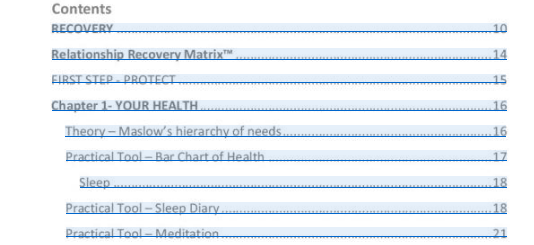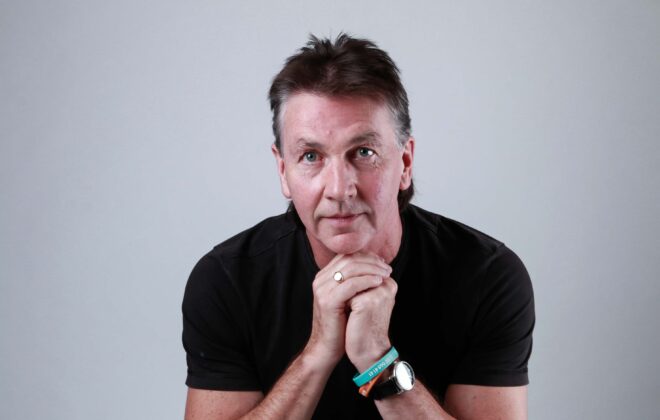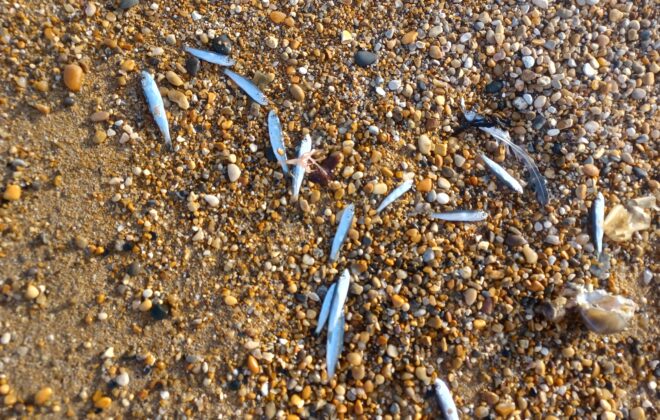The pandemic 4 years on
Remember?
The image above was taken 4 years ago, in 2020, when we were in lockdown. In the sunshine yesterday morning, before yet more rain came, I did the same walk and the view was the same. But what has changed?
For me and lots of people I know, the lockdown in the spring of 2020 was a sunny, furloughed, pause from the business of the world.
For those in the NHS it was a different story of course, as for those living in cramped conditions, on zero hour contracts, those living with domestic abuse, small children, chronic illness, mental health issues, for those living in nursing homes, prisons…the list goes on without mentioning the impact that the pandemic has on places like India, Africa, the countries where few ever saw a vaccine.
This was the week the schools closed. I had already pulled my kids out of school because I was reading the science rather than listening to the government, which is also why I didn’t ‘Eat out to help out’ or send my kids back to school before September. Even then, I was writing about the importance of thinking for ourselves, but never could have dreamt of all that has emerged about BoJo and his party-going cabinet since.

I wrote about the importance of community. Remember those WhatsApp groups to make sure local people were OK? What has happened to them? Are we still caring for each other in community? Remember how we clapped the NHS, then barely 2 years later, after all the rainbows and gratitude, they are fighting for pay, queues of ambulances are longer than ever, waiting times unchanged.
Remember how we were so grateful to shop workers, refuse collectors, how pleased we were to see the delivery people bringing our food and Amazon parcels when we didn’t leave the house? Are you still grateful?
Then schools. Remember the shambolic on-line learning in state schools; the occasional PowerPoint, whilst in the private sector live TEAMs chats and lessons got into gear straight away. Some kids didn’t have laptops, some homes didn’t have the internet. My friend in Denmark told me how there, those kids had computers brought to their homes, internet installed, food brought to those who needed it. Friends around the world emailed me so many different experiences.

At the time I felt so many different feelings; guilt, fear, gratitude, I knew I was one of the lucky ones; able to work at home and get paid, able to walk out into fields, with internet, with my kids at home. We were buffered in ways others weren’t and in the different education contexts I work, as a coach and a teacher I have seen the rise in anxiety that the news tells us about, first hand.
Anxiety, our response to a threat, worsened when we feel like we can’t escape it and have no agency. Let’s all pretend schools are safe, that it is OK to be in a room with lots of people, without masks (England) with masks (Wales). I think the kids knew they weren’t going to get really ill, but they all had parents, grandparents they worried about. And of course, anxiety is actually fear and fear was an appropriate response to an invisible threat which killed that lad’s dad, that one’s mum, elders in nursing homes. Anxiety made worse by the gaslighting that everything was just fine in schools, just fine.

What has changed?
So four years on, what has changed? Zoom meetings instead of flights, telephone doctors appointments, a litany of truth uncovering, increased home working, an increase in people in their fifties, who could work, but are choosing not to, Sarah Everard, police investigations, scandals, Liz Truss, bickering and the increasing impact of climate change (the warmest February on record – how many times did you have to scrape your windscreen before getting into the car?). Most of us have gone ‘back to’. Back to work, back to school, back to moaning about the NHS. Shop shelves are full again, there is toilet roll, this year exams will be ‘full’ again after the allowances made post pandemic.
I did a survey at the time, 56 people responded anonymously. It is worth re-reading. Unsurprisingly, some people were stressed and lonely, some bereaved, but many were feeling calmer, fitter, happier than they had done before.
When I asked them how they would like life to change in the future:
The overwhelming thing that people wanted was to see and spend more time with family and friends with twelve people naming it; ‘Spending more time with loved ones.’ ‘Value time with my friends a lot more.’ ‘Hold my new-born niece.’
Eleven people said they hoped that this would lead to systemic and social change; ‘Rebalancing of society.’ ‘Health and well being for all.’ ‘The true worth of the NHS.’ ‘To build our own manufacturing back up. To buy British.’ ‘I want us as a society to remember how much we valued people in jobs we may not even have noticed before, the postman, the shop assistant, the social care workforce, the bin men, the bank staff…not just our amazing NHS.’ ‘Better protection for non- permanent workers.’ ‘Re-evaluation of fairness in society and a redress of the distribution of money to things that are important (and away from things which are clearly not.).’ ‘A more equal society.’
They talked about wanting a simpler life, less commuting, less shopping, more time in nature and with people they love. We had connected to nature on our daily local walks so people were prepared and wanting to make changes to support the environment. They talked about appreciating the small things.
What about you?
When I look back, life has changed hugely since then. Some of it would have happened anyway; children growing up and leaving home. But because of the pandemic, I changed big things like my work and relationship status, medium things with long term impacts like insulating the house and installing solar panels, planting fruit bushes in the garden, and coppicing trees. I’ve connected more closely to the local community through yoga and now meet friends for a walk, rather than for a drink.

But the big shift for me came through an increased clarity and urgency around climate change. For me, as we sit in fields of mud and experientially know:
I feel so frustrated and angry, that the nature which saved so many souls and so much sanity four years ago, much like the NHS and the zero-hour delivery workers and shop assistants, have fallen out of our regard again as we push on with ‘more’ and ‘business as usual’.
I feel frustrated with myself. I want to do more to leave my kids a healthy biosphere and a safe world. But the war in the Ukraine, the Middle East, the far right getting the vote in Portugal, the government’s commitment to open new gas power stations, and all this talk about elections, without climate, appearing on anyone’s agenda, leaves me feeling helpless and sometimes despairing.
I try to make these blogs inspiring, but to sugar coat this would be fake. All I can do is remind myself of that time, when it felt like we could die any minute, alone, on a ventilator, leaving our children and loved ones. I can ask myself what mattered then? What I felt I had learned and how well I am doing with honouring that.
We know that the risk of another pandemic is increasingly certain the more we denude habitats,
Climate change is also altering animal habitats and forcing them to migrate to new territories, causing many species to meet for the first time20. Pathogens may travel between several animal species before reaching humans; therefore, novel species interactions driven by climate change also increase the risk of zoonotic spillover20.
As Hamlet said to Horatio:
‘…if not now, if it be not to come, it will be now; if it be not now, yet it will come..’ (Act 5, Scene 2, Lines 157-163)
All actions have consequences. USA, Russia, UK will all have elections this year. How those votes go will have an impact which will long ripple into the lives of our children and grandchildren. Elections are popularity contests of men (in these 3 cases) who want to keep their jobs for the next four or five years. We need to be looking at, if not the 7 generations hence, that native Americans wisely use in decision making, but at least to our descendants, our children’s children’s children.
Just as you and I were carried inside our grandmothers biologically (a baby girl’s eggs are present when she is still in the womb), so must we gestate and caretake a world for our descendants. Where there is war, there can be no peace because the trauma will be in the cells of those who live and who escape. Where there is poverty and hunger, there will be migration and the ‘nuisance’ of small boats, will become a global movement towards resources; we all would wouldn’t we? I would move to keep my kids safe and fed.
And this means we have to make hard choices now, right now. Make choices which maybe aren’t ask much fun or as comfortable. I love this episode of Always Sunny in Philadelphia where the gang tries to solve climate change, it is comic allegory. They ask the pub/bar goers to have one less drink, turn down to AC just a notch, so the party can keep going for longer, but no, no one does, because it is all about me having fun right now and screw everything else.
Sunny is a cult classic built around exaggerated narcissists who are grotesque parodies of ourselves. The truth is, we in the developed world have been partying at the majority world’s expense, and it now time to turn the music down and pay the bill, so our kids can party safely and our grandchildren too.
A long hard look
The truth is, the planet will be just fine, we either get a grip or the destroy our home and disappear to history as the Mayan’s and other civilisations did, then the planet will right itself.
The other truth is we are leaving our kids and theirs to a shit show and we had a taste of that four years ago. And it is no good our kids being OK, if the kids next door are not OK too. We had a chance to change our ways, make a difference, learn from that experience. We can’t change how America, Portugal or Russia vote, but we can or could change things here. We can lobby and influence at work, change our habits, how we invest and spend, how we look after each other and our local communities both human and non-human alike.
So, on this anniversary, I leave myself (and you) with questions.
- What did you learn from the pandemic?
- How are you honouring that?
- How can you live congruently, aligning your beliefs with your day-to-day?
- What does your body need, not just your head?
- Given that you are smart enough to understand that when we pollute and destroy the world, we make the lives of our children, nieces, nephews, younger friends and colleagues, grandchildren harder, what are you doing to lower your impact and increase your caring for the earth which is our life support?
- What can you have less of so other sentient beings can have enough?
- What decisions will your great grand children and their friends thank you for making?
- Where can you influence and have impact to create a world where all our children and grandchildren, where the more-than-human world, can live safely in health?
- How will you vote?
If you enjoyed reading this please share it with friends. You might also be interested in talking to me about coaching , or maybe try some of my online courses (some are free), or treat yourself to a climate protecting pamper with vegan friendly, organic Tropic which supports the planting of forests and education in deprived areas.
Thanks for being here.
Julie
Tags In
Related Posts
Categories
- Be Here Now (110)
- Education (40)
- Endings (58)
- environment (96)
- Inspiration (111)
- Podcasts and videos (49)
- Psychology and Emotions (147)
- Relationships and Family (150)
- Spirituality (70)
- stories and poems (95)
- Thinking Differently (186)
- Uncategorized (8)
- Well-being (106)
- Women (80)
- Work (42)




